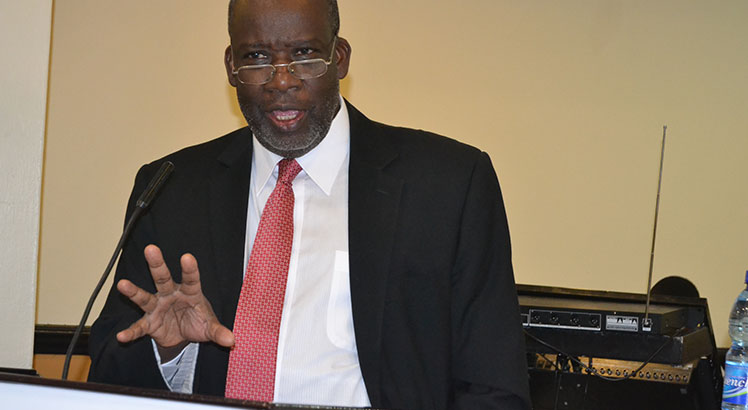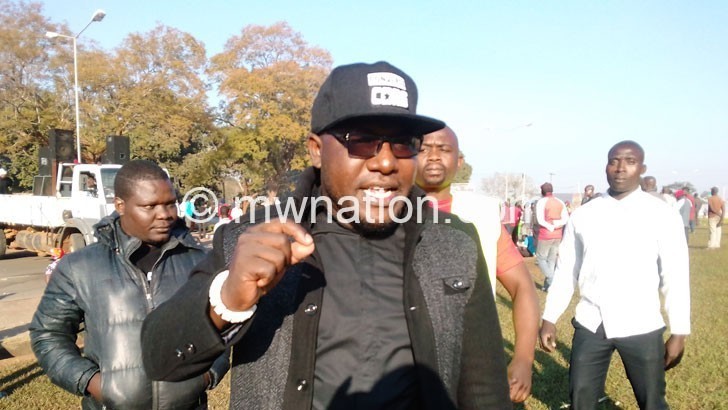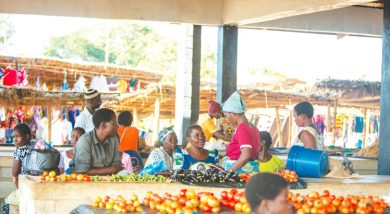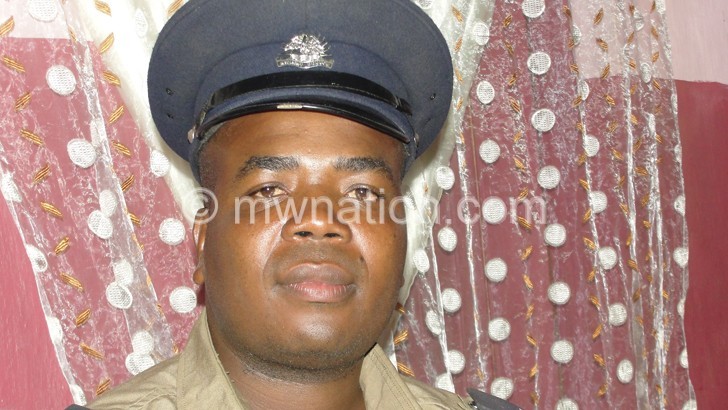Mzuni moves to rescue students
Moved by the possibility of having about 125 students withdrawing due to lack of fees, Mzuzu University (Mzuni) Vice-Chancellor John Kalenga Saka and his team have organised a big walk to raise K50 million.
Branded ‘Vice-Chancellor’s Walk for a Needy Student’, the big walk will be held this Saturday, according to Mzuni assistant registrar (public relations) Cliff Kawanga.

He said: “The Mzuzu University Vice-Chancellor Prof. John Saka and the Board of Trustees have organised a 10-kilometre ‘Walk for a Needy Student’ from the university’s Luwinga Campus to Mzuzu Shopping Mall on Saturday, 20th November 2021 from 6am.
“The aim of the walk is to raise K50 million to support 125 needy students who are on the verge of withdrawing from the university.”
The problem of needy students withdrawing or being at risk of withdrawing due to lack of fees is not unique to Mzuni. It cuts across all the six functional public universities in the country.
Two weeks ago, student union leaders wrote Vice-President Saulos Chilima, the Higher Education Students Loans and Grants Board (HESLGB) and Parliamentary Committee on Education seeking an audience to address the matter. The students want the loan amount and upkeep allowance increased due to rising cost of living.
In a recent response to a questionnaire on the issue of needy students being left out, HESLGB spokesperson for the board of directors Dr. Henry Chingaipe said it is not necessary and it is not desirable that all applicants should access loans.
He said the challenge was that some students who are well-supported by their parents and guardians still apply for loans to have more money for fun or other luxuries without the knowledge of their sponsors.
Chingaipe said: “Some applicants are not needy and do not deserve to access these public loans. Some students are well supported by their guardians, but still do apply for loans.
“I think that what we should do is to find ways that minimise errors of inclusion where undeserving students access loans and errors of exclusion where deserving students are left out. This will require refining the eligibility criteria based on feedback.”
Based on statistics from the Loans Board, 4 123 students accessed the loans in the inaugural year 2015/16 and there were 7 846 beneficiaries in 2016/17 while 9 306 benefitted in 2017/18.
The number reached 13 035 in the 2018/19 financial year and surged to 16 448 in 2019/20 and 18 424 in 2020/21.
However, during all this time, especially from 2016/17 fiscal year, at least 2 000 applicants are rejected on a yearly basis.
Meanwhile, academic expert Steve Sharra wondered why the board was failing to carefully verify and investigate beneficiaries of the loans, saying, the cheating issue has been outstanding for some time.
He said: “We were under the impression that they had found a way of addressing because it came up a few years ago. They had put in place a mechanism to do due diligence where they investigate and verify the status of the student.
“The question is what happened to that mechanism? Didn’t it succeed or do they have capacity problems because it should be possible to investigate and verify the names. If they have enough capacity and resources, they should be able to do this.”
On his part, Civil Society Education Coaltion executive director Benedicto Kondowe concurred with Sharra, adding that there is need for more resources at the board to meet the growing demand.
He said the issue of recovery should also be addressed because the recovered loans would help increase the number of beneficiaries.
“Without a serious plan on collecting the matured loans, we will not move anywhere. Government must also seek to mobilise the private sector to help, let it come up with modalities with the Public Private Partnership Commission on this aspect,” Kondowe said.
According to the Loans Board, those who qualify for the loans must be needy Malawian citizens, admitted into an accredited public or private higher learning institution.
They must also not have attended an elite high/secondary school unless there is evidence of neediness or inability to pay the tuition fees, have verifiable good conduct and commitment to studies and must provide verifiable evidence supporting their socio-economic status and inability to meet the costs of higher education.






One Comment